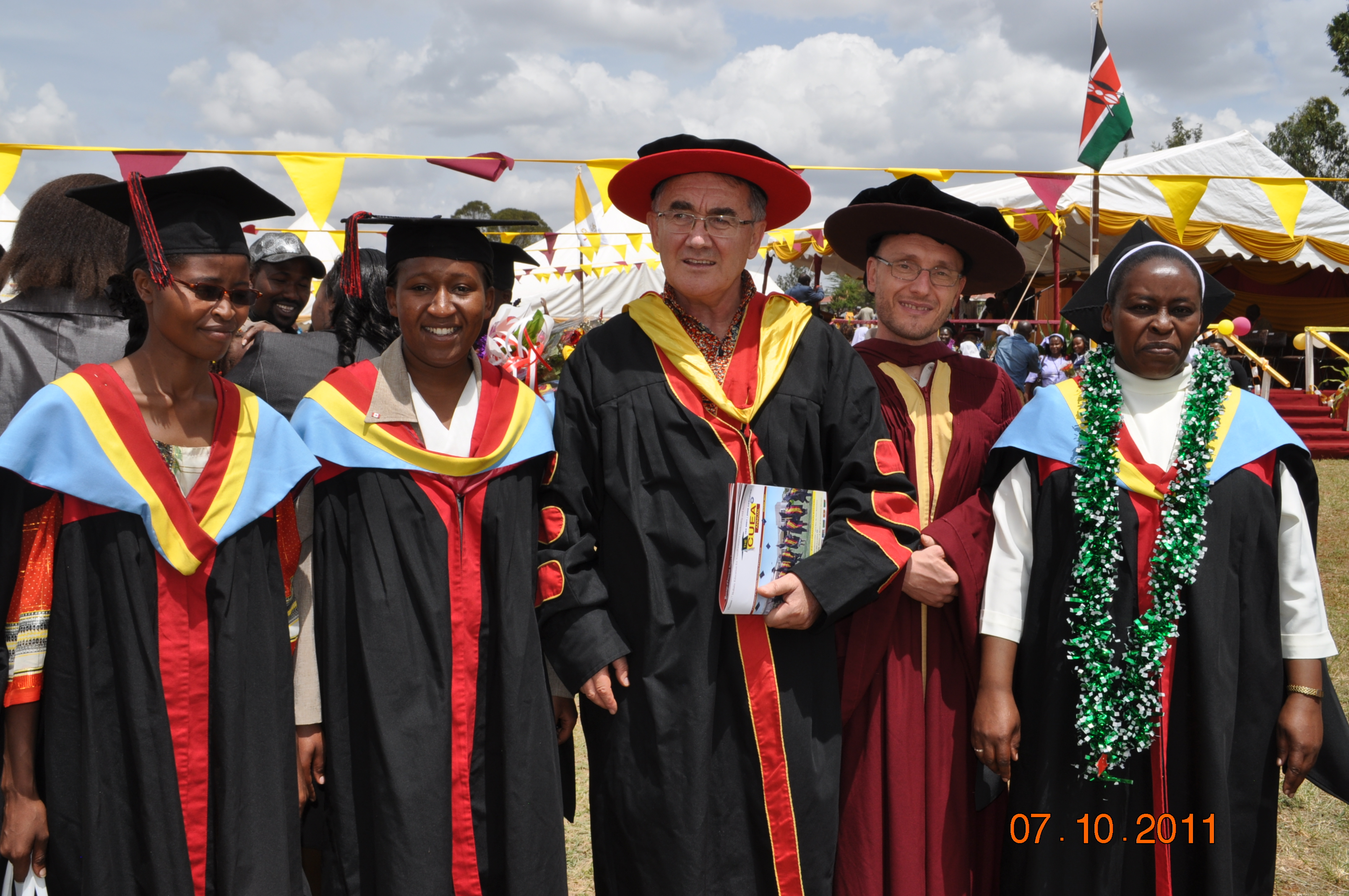Since my first departure for Africa in 1973, my joy was to be able to proclaim the Gospel to the ‘poorest and most abandoned’. My interest in the reality of social injustice went back to my time in my family, where native region of Umbria and my family members were socialists. In fact, we had Communist Party cards. Apart from that forma mentis of mine to look for the causes of poverty, I was assimilating the Second Vatican Council with enthusiasm. So I left for Africa, leaving aside all dogmatism.
The theology, the missionary tradition that I found there, was, in my opinion, outdated. While respecting and celebrating the good that had been done by missionaries in the past and up to that moment, I saw the urgency of outlining a “future” in the fraternal encounter to be equal with individuals, with peoples, with their religiosity and their cultures.
My theology had to start from the experience of ordinary people, lay people rather than clerical voices, from listening to reality always in the salvific-historical perspective, in order to grasp the essential of that Time of God that those peoples had lived in the past and of that Time of God in the moment in which we were now together.
The year 1993 arrived and I found myself again in Africa, in Kenya, whose church was in turmoil because of the 1st African Synod then being prepared. Together with that church we prepared proposals and then I found myself in Rome in 1994 to attend the Synod. Just as the Synod was being celebrated, genocide occurred in Rwanda, Africa’s most Catholic nation. I return to Kenya with a wounded heart but a clear intellect to believe that this great crisis was an opportunity for the rebirth of faith and so we looked forward with hope.
Together with Africans, missionaries, lay people we reflected on how to ensure that faith is lived with a concrete social dimension that leads to the transformation of hearts and society. Our starting point was at Tangaza College, a university institution created for ministerial formation. We were aware that something original was needed, that a new missionary era was beginning.If the originality of the 1600s with the Jesuits in Asia was dialogue with the cultures and religiosity of the Asian peoples; if the originality of Comboni in 1800 was already set to a mission that combined faith and human promotion; 1994 was the time to unite faith and Social Transformation. That means thinking about systemic change in order to change sinful structures and make the dignity of the human person, human rights, the condition of women and the common good flourish again. All this starting from the seeds of the Word that the Holy Spirit has sown.
WE ARE BORN TO SOCIAL TRANSFORMATION
Transformation belongs to life. It is a natural phenomenon of the cosmos and of history. But social transformation requires our participation in harmonious collaboration as men and women.
With theology and the social sciences in dialogue, we too are called upon in the new missionary movement to be creative, never passive. Building together a more humane and fraternal society, a social pact, a cultural pact, but also a scientific pact are urgent. (FT 204).
I do not see the contribution of the sciences as a rejection of ancient beliefs and perceptions of God in a past of traditions now out of context. How do the social sciences help us? They make us see the complex global world reality and situations with causes and effects that we did not see before, for which we are partly responsible, partly the past did not manage well, partly there are new winds that escape our perception. It is a reality in which the religious aspect is just one of many. The social sciences make us realise that the mission must touch on all the other aspects of human life. It is not just a matter of teaching the catechism with a series of formulations of faith or the articles of the creed. Every area of human life must be illuminated by Christ. Every unjust situation touches us and calls us to live it together with the victims.
We have a sure guide in the Social Teaching of the Church oriented towards the coming of God’s Kingdom of justice and peace. With it we are enriched in the transmission of the Gospel message, prepared to be transformed by other religions. Today “mission” is dialogical.
My missionary experience in Nairobi, where there are various Universities inspired by their respective religions, has been one of great dialogical impetus, deep social friendship, and mutual enrichment. My missionary ministry has been configured as bringing together other religious experiences with the Christian experience characterised by Jesus Christ to build in the world the Kingdom of God of brotherhood, to break down the walls of prejudice and separation.



